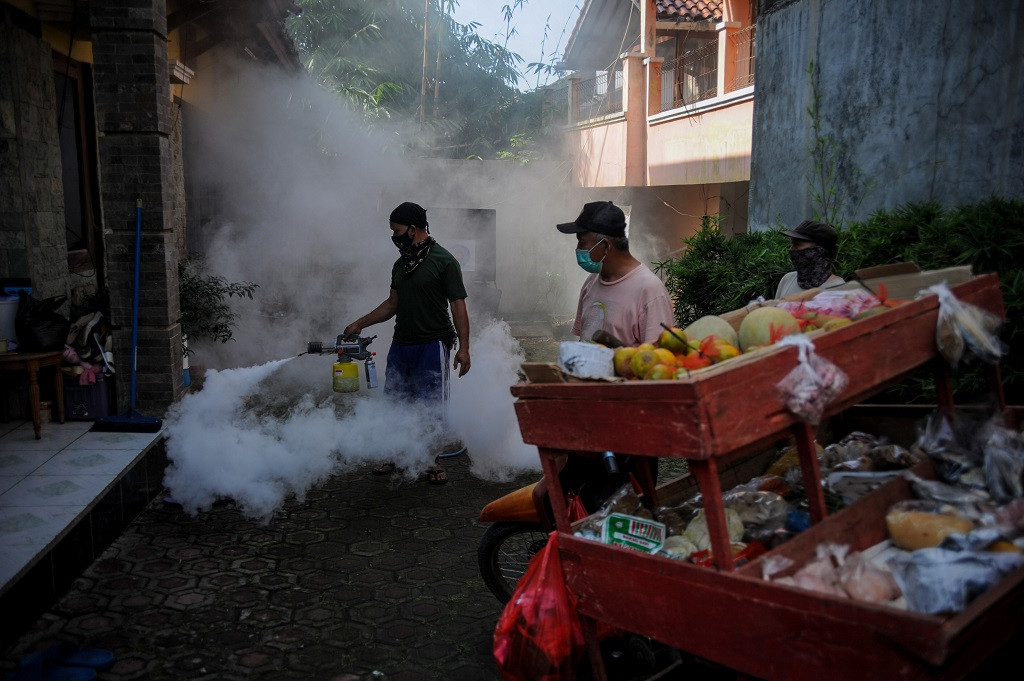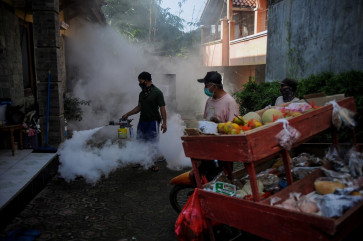Popular Reads
Top Results
Can't find what you're looking for?
View all search resultsPopular Reads
Top Results
Can't find what you're looking for?
View all search resultsAn urgent call for a climate-proof health system
The current health systems are not prepared for the dual burden of climate change and escalating pandemic risks.
Change text size
Gift Premium Articles
to Anyone
N
umerous heat records have been broken across Southeast Asia and other parts of the continent in recent weeks, causing many people to suffer from respiratory diseases. It has been described as the worst April heat wave in history.
Human-made climate change is increasing the duration and intensity of heat waves, droughts and floods. What used to be regular challenges we could absorb has become cataclysmic destruction. This is particularly concerning amidst the fallout from the COVID-19 pandemic.
Globally, the last decade has been the warmest on record. Heat waves are expected to become more frequent and intense as climate change accelerates. This year could mark the return of the El Nino weather phenomenon, which is associated with warmer sea surface temperature.
Climate change drives up temperatures and is forcing everything that can to get out of the heat. This means that species that were previously geographically isolated are now running into each other’s paths, which will increase the risk of spreading viruses and other pathogens from one to another, fueling spillover events, and will accelerate the emergence of the next disease X.
The connections between people and environments are under stress from human-driven climate change, pollution, resource exploitation and other actions that may have implications for public health. Many implications regarding public health are not well characterized, leading to gaps in understanding the interconnections between public health and ecosystem health systems and how ecosystem resiliency may affect public health. Climate change and pandemics, caused by emerging pathogens, represent two of the biggest existential risks known to humanity.
The world cannot afford to view these threats as discreet issues; they are intimately connected. The current health systems are not prepared for the dual burden of climate change and escalating pandemic risks.
At the same time, malaria and dengue fever have been around us for years and are endemic in many parts of Indonesia, especially in water-logged areas like Papua. Vulnerable people such as children under 5 years old, the elderly, pregnant women and people with chronic diseases can do very little against climate change. Malaria and dengue cases will rise due to the rains and hotter weather.



















